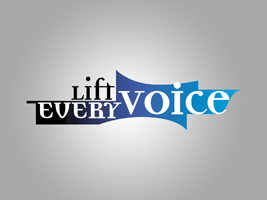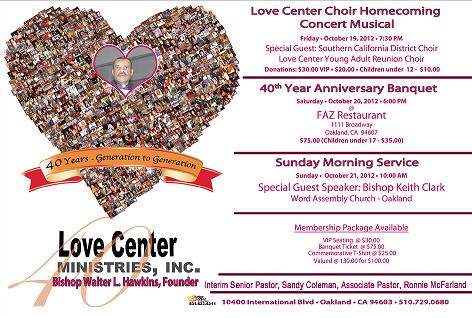 California is seeking to legalize marijuana this November. You knew it was just a matter of time before the signatures were gathered, given the legalization of marijuana for medicinal use passed in the state a few years back. Baby boomer “hippies” turn 65 this year.
California is seeking to legalize marijuana this November. You knew it was just a matter of time before the signatures were gathered, given the legalization of marijuana for medicinal use passed in the state a few years back. Baby boomer “hippies” turn 65 this year.
If anybody is going to get marijuana legalized, the “free love” generation is gonna get it done. But at who’s expense? The federal government still hasn’t decriminalized marijuana. The state of California still hasn’t quite worked out all the kinks on the prior piece of legislation and with medical marijuana dispensers popping up on every corners faster than liquors stores used to, municipalities were forced to regulate “medical high” treatment.
Conflicts over who really needs it versus who really wants it has marginalized the intended consequences of the legislation with a host of unintended consequences. California is not ready to have the discussion about marijuana being legal for recreational use, but the state’s financial crisis has opened the door—and anything that can be taxed is fair game. Pot included. Prostitution is next (but that’s another article).
What really makes Proposition 19 stranger than fiction is that the state chapter of the NAACP has endorsed the referendum. Since when did legalizing marijuana become a civil rights issue? We know, the past few years, the state NAACP has become awfully proficient at endorsing ballot initiatives. Initiatives that coincidentally fund independent expenditure campaigns run by the chapter president’s consulting firm for hundreds of thousands of dollars. Okay, this is America, where opportunity—no laws appear to be broken but the appearance of impropriety of a state chapter civil rights group endorsing initiatives its president is paid to run couldn’t be more clear. But this is way out of bounds for the NAACP. The only one that looks high on this endorsement is the NAACP. Legalize marijuana, for real?
Now I really don’t like criticizing the NAACP because it is where my advocacy was born. It’s sort of like badmouthing the ole neighborhood. It’s hard to talk about where you came from, but sometimes you have to-to get the ole hood to move out of the past into the future. So, I have critiqued them in the past, and will in the future. I recently gave them a pass on an issue that clearly wasn’t a civil rights issue, nor was it a discrimination, nor was it a hate crime. The Hallmark card, so-called “Black Hos” issue (the talking card actually said “black holes, like holes in the universe…), showed really how off base the NAACP (Los Angeles chapter) has gotten in its advocacy. I can’t give em a second pass. The NAACP tries to be everything to everybody. Legalizing marijuana is not a civil rights issue. But armed with statistics, the President of the California NAACP, Alice Huffman, rationalized the endorsement by suggesting that because blacks (black males in particular) are arrested more for weed stops even though they smoke less weed. Well, blacks are stopped more for everything and arrested more for everything. It’s a statewide racial profiling issue, when stopped on violations equivalent to their white counterparts, whites are diverted out of the criminal justice system and blacks are directed (not diverted) into the criminal justice system. Why doesn’t the California NAACP call out the statewide racial profiling of blacks or black males? That’s a civil rights issue. It’s one of those things that make you go, hmmmm…for real. The statistics don’t lie, but NAACP put emphasis on the wrong aspect. Black men are not going to stop being pulled over, and are not going to stop being arrested because marijuana is legalized.
What will happen instead is that a host of unintended consequences will occur that exceeds those that results from the medicinal use law. Legalized marijuana will be sold to 21 year olds and allow one ounce to be in their possession. Since the new initiative prohibits smoking while driving, or smoking with children in the car, instead of being stopped for “suspicion” of DUIs (drinking under the influence), blacks will be stopped on suspicion of SUIs (smoking under the influence). The racial profiling will still continue. Consumption of alcohol and drugs (and marijuana is a drug—no one refuses that) occurs most where people are poorest, jobless and most depressed. Has the NAACP calculated what the impact on our (black) community, ones with highest unemployment, lowest incomes and wealth ratios and the worst mental health care in the state, will be-just from this perspective alone? Or has Huffman only calculated how much money will be spent on getting the ballot initiative passed? Will legalized marijuana become the new cigarette where instead smokers smoking a pack a day, they smoke an ounce a day? Has Huffman been following the robberies and violence tied to the medicinal use outlets? What legalization advocates are not looking at is the access to marijuana. We know liquor stores are gathering spots for illicit crime activity. Will marijuana (head) shops replace liquor stores as the neighborhood blight spot? Where will the tax money go, into the general fund or to help community clinics and people with addictions? I haven’t raised question with the slowness that occurs with weed use and the impacts on our children with potheads as parents (and grandparents-that’s scary). We know people high on pot demonstrate erratic behavior. How do police interpret that? Then there’s still the issue of the federal government considering pot illegal. Seems to me if the NAACP really wanted to be an advocate on this issue, it would lobby federal decriminalization before the state passes its initiative. I’m sorry…the California NAACP missed it on this one.
In conclusion, this legalize pot issue is about money—and not the tax side. I’m sure this state president hasn’t missed that since it is part of what she does as her business. But the NAACP’s place in this debate is highly suspect and badly positioned. The state president is well positioned, however, which calls her motives for endorsing the initiative into question. Maybe it’s me. But NAACP can’t be so high they can’t see the downside greatly outweighs any contrived upside to legalizing marijuana. I’m jus sayin.
Anthony Asadullah Samad, Ph.D., is a national columnist, managing director of the Urban Issues Forum and author of the upcoming book, REAL EYEZ: Race, Reality and Politics in 21st Century Popular Culture. He can be reached at www.AnthonySamad.com
Twitter: http://twitter.com/DrAnthonySamad



No Comments